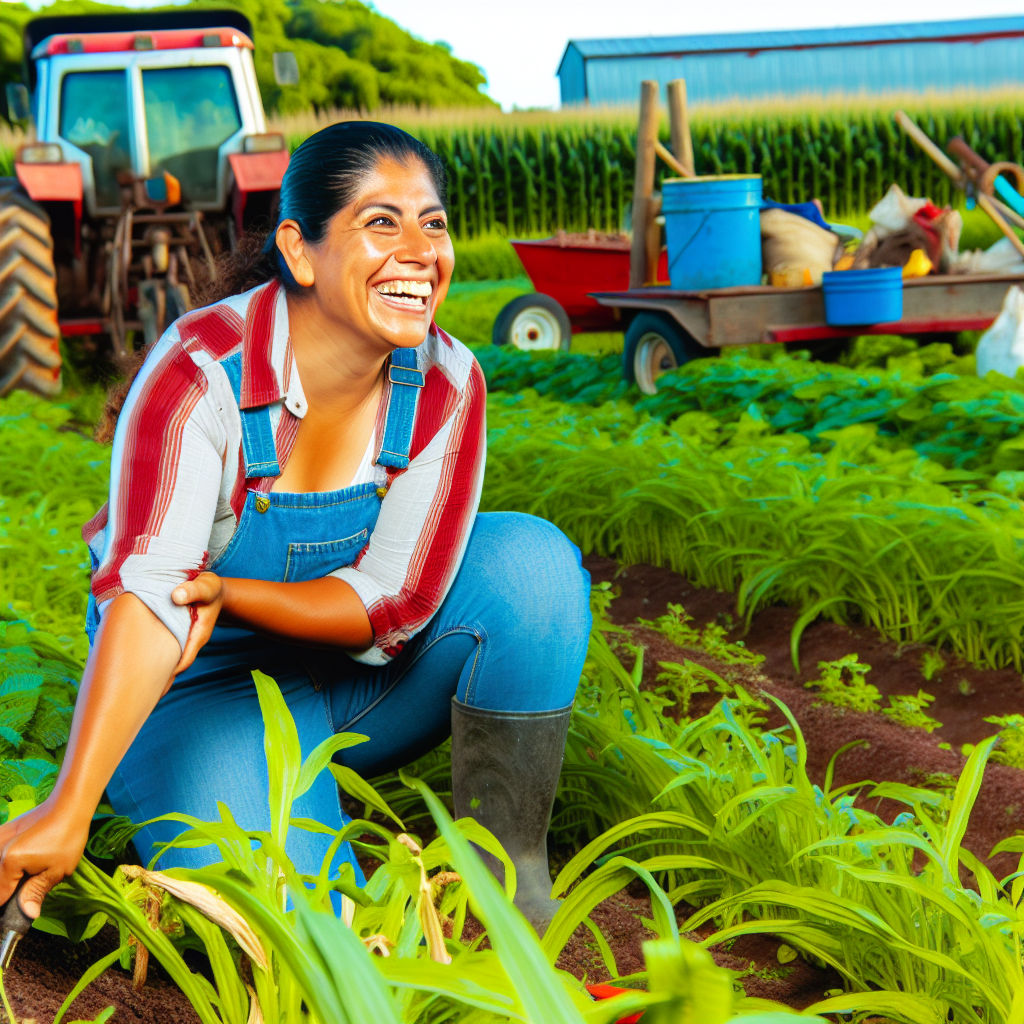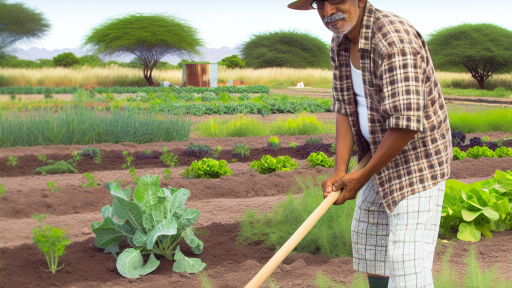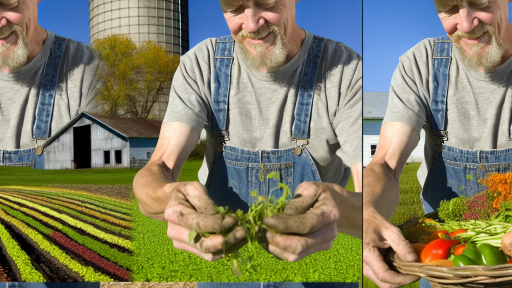Understanding the Concept of Agri-Tourism
Defining Agri-Tourism
Agri-tourism combines agriculture and tourism effectively.
This concept enables visitors to experience rural life firsthand.
Farmers offer unique experiences on their properties.
Travelers engage in activities while learning about farming practices.
Thus, agri-tourism fosters a deeper appreciation for agriculture.
Importance of Agri-Tourism
Agri-tourism provides significant economic benefits to local communities.
It creates additional income streams for farmers.
Moreover, it strengthens community ties by attracting visitors.
Local businesses also flourish due to increased traffic.
This growing sector supports sustainable agricultural practices.
Key Components of Agri-Tourism
Successful agri-tourism includes interactive activities.
- Farm tours allow visitors to explore fields and barns.
- Workshops offer hands-on experiences like cheese-making.
- Pick-your-own produce initiatives engage tourists directly.
- Farm stays provide immersive overnight experiences.
Such activities create lasting memories for participants.
Challenges Facing Agri-Tourism
Despite its benefits, agri-tourism faces distinct challenges.
Many farms lack adequate infrastructure for visitors.
Seasonal fluctuations can affect visitor turnout dramatically.
Transform Your Agribusiness
Unlock your farm's potential with expert advice tailored to your needs. Get actionable steps that drive real results.
Get StartedFurthermore, balancing farming duties and tourism can be difficult.
Education and marketing are essential for overcoming these hurdles.
The Future of Agri-Tourism
Agri-tourism has the potential for continued growth worldwide.
As people seek unique travel experiences, demand increases.
Technology can enhance visitor engagement through virtual tours.
Moreover, promoting sustainable practices attracts eco-conscious travelers.
Ultimately, agri-tourism can contribute to the revitalization of rural areas.
Identifying Target Audiences for Agri-Tourism Experiences
Understanding Diverse Audiences
Agri-tourism appeals to a variety of audiences.
Identifying these groups helps tailor experiences effectively.
Family-oriented visitors often seek educational activities.
Culinary enthusiasts look for farm-to-table experiences.
Adventure seekers may prefer hands-on farm activities.
Families and Children
Families are a key demographic in agri-tourism.
Parents often prioritize educational activities for their children.
Activities like farm tours and animal interactions are popular.
Creating playful environments enhances children’s engagement.
Consider offering workshops on planting and harvesting.
Foodies and Culinary Enthusiasts
Foodies are drawn to agri-tourism for unique culinary experiences.
Farm tours that showcase fresh produce can be captivating.
Workshops on cooking with local ingredients attract these visitors.
Wine tasting events can also appeal to this audience.
Highlighting local chefs and recipes adds value to the experience.
Adventure and Eco-Tourists
Adventure seekers look for active participation in farm life.
Offering activities like fruit picking and animal care is essential.
Showcase Your Farming Business
Publish your professional farming services profile on our blog for a one-time fee of $200 and reach a dedicated audience of farmers and agribusiness owners.
Publish Your ProfileEco-tourists appreciate sustainable farming practices.
Highlighting conservation efforts attracts this demographic.
Providing guided hikes through scenic farmland can enhance appeal.
Targeting Specific Groups
Understanding demographic characteristics enhances marketing efforts.
Consider age, interests, and location when targeting audiences.
Use social media to reach younger audiences effectively.
Traditional media may be more effective for older demographics.
Networking with travel agencies can help reach diverse groups.
Feedback and Adaptation
Gathering feedback is crucial for improving experiences.
Surveys can provide insights into visitor preferences.
Regularly updating offerings keeps experiences fresh and engaging.
Adapting to audience feedback fosters loyalty and repeat visits.
Establishing a dialogue encourages ongoing engagement with visitors.
Creating Authentic and Immersive Farm Experiences
Engaging Activities for Visitors
Farm experiences thrive on engaging activities.
These activities encourage visitor participation and enjoyment.
Consider offering guided farm tours to educate guests.
Workshops on sustainable farming practices can be attractive.
Visitors enjoy hands-on experiences, such as fruit picking.
Animal interactions provide memorable moments for families.
Farm-to-table dining enhances the experience with fresh produce.
Incorporating Local Culture
Integrating local culture adds authenticity to the experience.
Highlight traditional farming techniques through demonstrations.
Share stories from local farmers to connect guests to history.
Consider incorporating local music and arts into the experience.
Offer workshops that reflect local crafts and heritage foods.
Creating a Welcoming Atmosphere
A welcoming atmosphere is essential for a memorable visit.
Friendly staff can enhance visitor enjoyment significantly.
Ensure facilities are clean and well-maintained for comfort.
Provide seating areas for relaxation amidst the farm’s beauty.
Offer refreshments or snacks made with local ingredients.
Utilizing Technology for Connection
Leverage technology to enhance visitor engagement.
Use social media to promote events and share experiences.
Develop an app to provide information about farm activities.
Virtual reality experiences can showcase farm life interactively.
Online booking systems simplify the process for guests.
Gathering Feedback for Improvement
Regular feedback is crucial for improving experiences.
Encourage visitors to share their thoughts after their visit.
Set up an online survey to collect opinions easily.
Actively respond to feedback to show guest appreciation.
Use insights to refine activities and services continually.
Showcase Your Farming Business
Publish your professional farming services profile on our blog for a one-time fee of $200 and reach a dedicated audience of farmers and agribusiness owners.
Publish Your ProfileDelve into the Subject: Organic Farming Tips for Community Supported Agriculture
Integrating Educational Elements into Agri-Tourism Activities
Importance of Education in Agri-Tourism
Education enhances the overall experience of agri-tourism visitors.
It provides context and knowledge about agricultural practices.
Moreover, it fosters a deeper connection between visitors and farmers.
Types of Educational Activities
Implement interactive workshops to engage visitors actively.
Farm tours can offer firsthand insights into daily operations.
Demonstrations showcasing cooking or food preservation are beneficial.
Additionally, hands-on experiences like planting can deepen understanding.
Creating Informative Materials
Develop brochures detailing educational activities available.
Include information about local agricultural history and practices.
Digital resources, such as QR codes, can enhance learning experiences.
Visual aids help convey complex concepts simply and effectively.
Collaboration with Local Educators
Engage local schools for field trips to promote learning.
Partner with universities for workshops led by agricultural experts.
Host special events that connect youth with farming traditions.
Measuring Impact
Gather feedback from visitors regarding their educational experiences.
Use surveys to assess knowledge gained through activities.
Continuously refine educational offerings based on visitor input.
This process ensures a responsive and impactful agri-tourism program.
Find Out More: Exploring Agri-Tourism: Benefits for Modern Farmers
Utilizing Local Food and Produce in Visitor Offerings
The Value of Local Food
Local food creates authentic culinary experiences for visitors.
It connects guests with the region’s agricultural heritage.
Furthermore, local food supports the local economy and farmers.
Choosing seasonal produce enhances the freshness of meals.
Showcasing Unique Offerings
Each location has unique products that attract visitors.
For example, farms can offer fresh fruit picking experiences.
Visitors enjoy hands-on experiences, connecting with nature.
Additionally, hosting farm-to-table dinners delights guests.
Collaborating with Local Chefs
Partnering with local chefs can elevate food experiences.
Chefs bring creativity and expertise to the table.
They can design special menus highlighting local produce.
Moreover, these collaborations can lead to exciting events.
Education and Engagement
Educational workshops can enhance visitor understanding.
Workshops can focus on cooking techniques or sustainable practices.
Engaging visitors in cooking experiences fosters memories.
Additionally, sharing recipes allows guests to replicate flavors at home.
Promoting Local Products
Offer local goods in farm shops to enhance the visitor experience.
Visitors appreciate the ability to purchase unique products.
Local jams, honey, and artisanal items make great souvenirs.
This showcases the bounty of the area while supporting local artisans.
Showcase Your Farming Business
Publish your professional farming services profile on our blog for a one-time fee of $200 and reach a dedicated audience of farmers and agribusiness owners.
Publish Your ProfileYou Might Also Like: Permaculture Strategies For Sustainable Farming

Designing Engaging Tours and Activities for Visitors
Creating a Welcoming Atmosphere
First impressions matter in agri-tourism.
Ensure your welcome area is warm and inviting.
Use natural decorations to reflect your farm’s environment.
Offer complimentary refreshments to greet guests.
Additionally, train staff to be friendly and knowledgeable.
Crafting Unique Farm Experiences
Develop experiences that showcase your farm’s specialty.
Consider hands-on activities like fruit picking or animal feeding.
Offer guided tours to educate visitors about agriculture.
Include tastings of farm products to enhance their visit.
Incorporating Educational Elements
Education adds value to your tours.
Utilize engaging storytelling techniques during tours.
Share the history and practices of your farm.
Use visual aids to illustrate complex farming processes.
Encouraging Interaction and Participation
Interactive activities enrich visitor experiences.
Create opportunities for guests to engage with farm tasks.
Organize workshops where guests can learn new skills.
Encourage questions throughout the tour for engagement.
Planning Seasonal Events
Seasonal events can attract repeat visitors.
Host harvest festivals that celebrate seasonal produce.
Consider themed events for holidays like Halloween or Christmas.
Promote these events through social media and local channels.
Offering Relaxation Areas
Designate spaces for guests to unwind during their visit.
Provide picnic areas with scenic views of your farm.
Ensure there are comfortable seating options available.
Additionally, include games and activities for family fun.
Learn More: Supporting Youth Agriculture Through School Programs
Leveraging Technology to Enhance Visitor Experiences
Interactive Mobile Apps
Interactive mobile apps can transform visitor engagement in agri-tourism.
These apps provide real-time information about activities, crops, and events.
Visitors can navigate farms easily, accessing maps and schedules.
Furthermore, they can learn about the farming practices in use.
Adding gamification elements increases visitor excitement and participation.
Virtual Reality Experiences
Virtual reality offers an immersive way to explore farms.
Visitors can experience plant growth cycles from seed to harvest.
This technology enables them to interact with crops and farm animals.
Offering VR experiences appeals to tech-savvy tourists seeking unique engagement.
It educates them on sustainable farming methods in an entertaining format.
Social Media Engagement
Social media serves as a powerful tool for promoting agri-tourism.
Posting compelling images and stories engages potential visitors online.
Creating hashtags encourages visitors to share their experiences.
Showcase Your Farming Business
Publish your professional farming services profile on our blog for a one-time fee of $200 and reach a dedicated audience of farmers and agribusiness owners.
Publish Your ProfileThis interaction builds a community around the farm experience.
Highlighting guest stories fosters connections and builds authenticity.
Online Booking and Management Systems
Implementing online booking systems simplifies the visitor experience.
It allows easy reservation for tours and activities directly from home.
Moreover, management systems streamline the process for farm operators.
This efficiency ensures a smooth experience for both visitors and hosts.
Automated confirmations and reminders enhance customer satisfaction.
Marketing Strategies for Promoting Agri-Tourism Ventures
Defining Your Target Audience
Identify the ideal customers for your agri-tourism venture.
Consider various demographics such as families, couples, and tourists.
Understanding their interests helps tailor your offerings.
Additionally, use surveys to gather insights about their preferences.
Utilizing Social Media Platforms
Leverage popular social media platforms to reach potential visitors.
Create engaging content that showcases your activities and farm life.
Share attractive photos and lively videos to draw attention.
Encourage user-generated content to boost authenticity and engagement.
Regularly interact with followers to build a loyal community.
Building Partnerships with Local Businesses
Collaborate with local restaurants and hotels to promote your venue.
Offer exclusive packages that combine experiences and accommodations.
These partnerships can enhance visibility for both sides.
Participate in local events to showcase your offerings and network.
Hosting Seasonal Events and Workshops
Organize seasonal events to create excitement and drive attendance.
Workshops can educate visitors about farming practices and sustainability.
Invite local artisans to host craft fairs or food festivals.
This not only attracts guests but also builds community engagement.
Implementing Effective Online Strategies
Develop a user-friendly website that provides essential information.
Include clear calls to action to encourage bookings and inquiries.
Optimize your site for search engines to increase visibility.
Utilize email marketing to keep subscribers informed about events.
Additional Resources
Farm to Table: Building Local and Regional Food Systems – SARE
Agritourism: A Strategic Pathway for Development in Central …




